Helpful Tips for Dogs
-
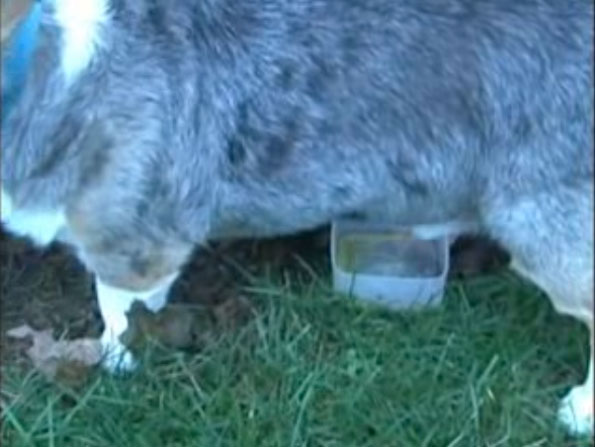
Collecting a urine specimen from your dog – Male
Make sure that you use a clean plastic container. Your vet may provide you with one or you may use a clean margarine dish or something similar. A pie plate works best for female dogs. Keep in mind that a fresh specimen is best. Anything more than 12 hours old will not provide accurate results. If you can’t bring in…
-
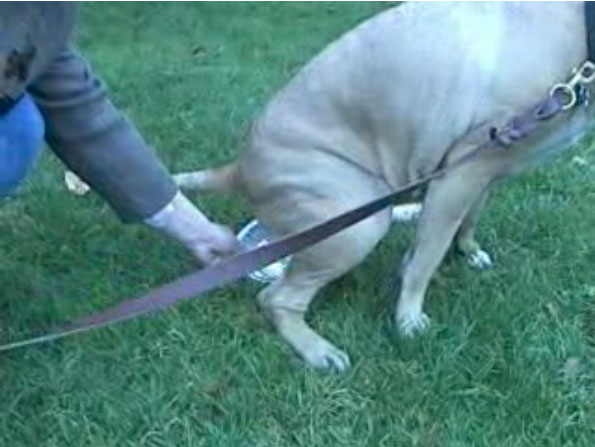
Collecting a urine specimen from your dog – Female
Make sure that you use a clean plastic container. Your vet may provide you with one or you may use a clean margarine dish or something similar. A pie plate works best for female dogs. Keep in mind that a fresh specimen is best. Anything more than 12 hours old will not provide accurate results. If you can’t bring in…
-
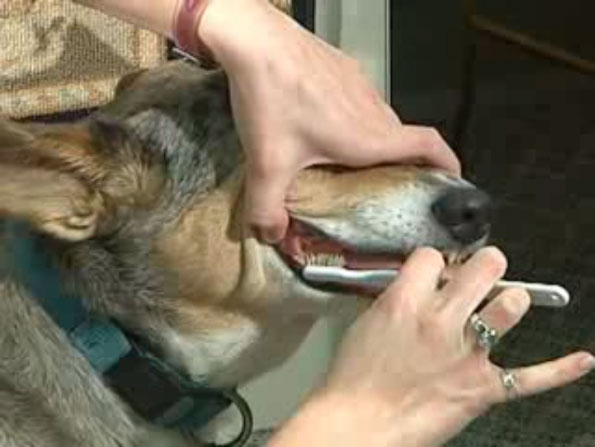
Brushing your dog’s teeth
Teaching your dog to accept brushing will take some training, but will be very beneficial to the dog once he is accustomed to the process. Daily brushing is most beneficial and will help to establish a routine for your pet, but brushing twice a week is acceptable if your schedule can’t accommodate daily brushing. Instructions Choose a quiet time and…
-
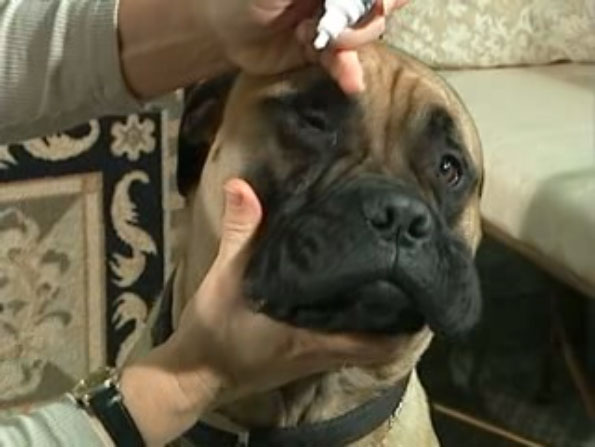
Administering eye drops to your dog
Make sure that you wash your hands both before and after administering the medication to prevent the spread of infection. If your dog’s eye is painful, you may need to have someone assist you with restraining or you may need to apply a muzzle. Instructions Make sure you have carefully read the label and understand the dosing instructions. Hold the…
-

Administering ear drops to your dog
Remember that the ear may be very painful and that even a passive dog may respond by biting. You may need to muzzle the dog for this procedure. Instructions Click on the “video” button to watch a demonstration or read the steps that follow. Warm the medication by standing the bottle in a bowl of warm water for a few…
-
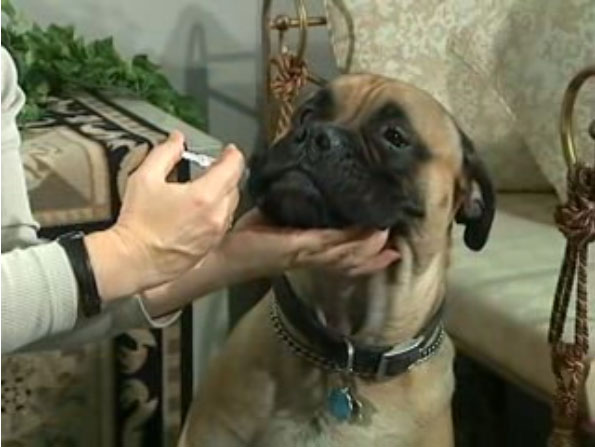
Giving liquid medication to your dog
The easiest way to give your dog a liquid medication is to mix it with some canned food. To ensure that the medication is actually taken, it is best to give a small amount of food that the dog is certain to eat rather than a large portion that the dog may not complete. Some dogs may be unwilling to eat the food or may have dietary restrictions that prevent you from using this technique. If this is the case, you will need to administer the medication directly into your dog’s mouth.
-
Giving your dog a pill
Instructions Grease the pill with a very small amount of margarine or butter so that it doesn’t stick in the pets mouth or throat. Hold the pill between your thumb and index finger (use your dominant hand – for example, if you are right handed, use your right hand). Gently grasp your dog’s muzzle from above with your other hand,…
